In a significant geopolitical development, India’s National Security Advisor Ajit Doval confirmed that Russian President Vladimir Putin is scheduled to visit India in the near future, underscoring the enduring strategic partnership between New Delhi and Moscow. The upcoming visit holds considerable diplomatic weight as it comes at a time of heightened global geopolitical flux, especially amidst ongoing tensions between the West and Russia over Ukraine, evolving energy alliances, and a rebalancing of global trade dynamics.
Ajit Doval made the statement during a high-level briefing where he emphasized that India and Russia continue to share “deep-rooted, time-tested” ties that go beyond transactional cooperation. President Putin’s anticipated visit is expected to involve high-level talks with Prime Minister Narendra Modi and senior Indian ministers, covering a broad spectrum of issues ranging from defense and energy to regional security and trade.
Strengthening Indo-Russian Strategic Cooperation
India and Russia have enjoyed a multi-decade strategic partnership that spans defense collaboration, nuclear energy, space technology, and pharmaceuticals. Despite global pressure—especially from the U.S. and EU—India has maintained a nuanced and independent foreign policy position regarding the Russia-Ukraine conflict.
President Putin’s upcoming visit signals an intent to deepen this bilateral relationship further. The visit will reportedly include discussions on new defense contracts, joint production of military platforms under ‘Make in India’, energy partnerships including long-term crude oil supplies, and possibly rupee-ruble trade mechanisms to bypass Western sanctions.
Background: Historical and Emerging Cooperation
India and Russia have long collaborated on military hardware and strategic technologies. More than 60% of India’s military inventory is of Russian origin. Moreover, collaborations like the INS Vikramaditya aircraft carrier, BrahMos missile systems, and S-400 air defense systems underscore the strength of the defense pillar of this relationship.
In recent years, however, the India-Russia relationship has evolved to accommodate new dimensions such as:
- Energy security: India has emerged as a major buyer of discounted Russian crude amid Western sanctions.
- Space cooperation: ISRO and Roscosmos are in discussions for deeper collaboration post-Chandrayaan and Gaganyaan missions.
- Pharmaceutical manufacturing: Joint R&D on vaccines, especially during COVID-19, saw Russia’s Sputnik V being co-produced in India.
- Education and cultural exchange: Thousands of Indian students pursue higher studies in Russian medical and engineering institutions annually.
Key Focus Areas of Putin’s Visit
The upcoming summit is expected to prioritize:
| Focus Area | Key Discussion Points |
|---|---|
| Defense Cooperation | New technology transfers, joint manufacturing, S-400 deliveries, next-gen submarines |
| Energy Partnership | Long-term crude supply deals, LNG infrastructure, nuclear energy cooperation |
| Trade and Investment | Expansion of bilateral trade volumes beyond $50 billion, local currency settlements |
| Connectivity Projects | Expansion of the North-South Transport Corridor, Arctic shipping lanes |
| Global Diplomacy | Coordination on BRICS, SCO, multipolar world order, counter-terrorism |
Indo-Russian Trade Snapshot
Trade relations between the two countries have surged post-2022. India’s oil imports from Russia skyrocketed, making Russia the top supplier to India, surpassing traditional exporters like Iraq and Saudi Arabia.
| Year | Bilateral Trade (USD Billion) | Indian Imports from Russia | Indian Exports to Russia |
|---|---|---|---|
| 2020 | 8.1 | 6.9 | 1.2 |
| 2022 | 35.2 | 32.8 | 2.4 |
| 2023 | 49.8 | 45.3 | 4.5 |
| 2024 (est.) | 56.0 | 51.5 | 4.5 |
This trajectory signals a mutual interest in diversifying the trade basket to include technology, agriculture, pharmaceuticals, and infrastructure investments beyond energy and defense.
The BRICS and Multipolarity Agenda
Russia and India are key players in the BRICS grouping, which has been vocal about reforming the global financial and political architecture. Putin’s visit is expected to further dialogue on expanding BRICS influence, local currency trade mechanisms, and the development of alternative international financial systems less dependent on the U.S. dollar.
Ajit Doval highlighted the need for emerging powers to assert their interests in a multipolar world order, something that finds strong alignment with Russia’s foreign policy goals.
Russia’s Pivot to Asia
With mounting sanctions and isolation from Western economies, Russia has intensified its strategic pivot to Asia. Countries like China and India have become vital partners not just in energy trade but also in technological, military, and geopolitical cooperation.
President Putin’s visit will reinforce Russia’s commitment to Asia as a crucial partner in its long-term strategy and bolster India’s position as a neutral yet influential global actor.
Challenges Ahead
Despite the bonhomie, the Indo-Russian relationship is not without challenges:
- Over-dependence on defense imports from Russia may impact India’s strategic autonomy in the long run.
- Global scrutiny over India’s energy trade with Russia could intensify, especially under a more hawkish Western outlook.
- Technology and innovation gaps need to be bridged to make joint ventures viable in a fast-evolving global tech landscape.
A Renewed Vision for the Future
Putin’s visit is expected to result in the signing of multiple memorandums of understanding (MoUs) across sectors. There is also speculation about collaborative efforts in artificial intelligence, quantum computing, and green energy—sectors critical to both nations’ long-term development goals.
If all goes as anticipated, the summit will not only revive and refresh bilateral mechanisms like the India-Russia Annual Summit—which did not occur in 2022—but also set the tone for an evolved partnership that balances legacy with innovation.
Strategic Significance in a Shifting Global Order
At a time when global alignments are in flux, India’s ability to balance relationships with both the West and Russia will be watched closely. By hosting President Putin, India reinforces its independent foreign policy rooted in pragmatism and strategic autonomy.
The optics and outcomes of the visit will likely resonate beyond South Asia, signaling to the world that India continues to be a key player capable of engaging multiple power blocs without compromising national interest.
Disclaimer:
This article is intended for informational purposes only and does not constitute political or strategic advice. Any opinions or projections mentioned herein are based on current publicly available insights and should not be construed as definitive future outcomes.

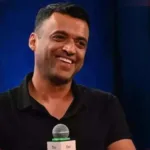

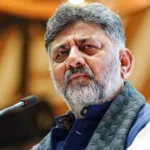
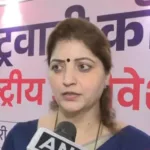
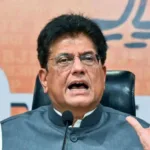
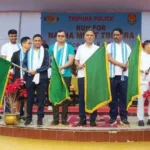
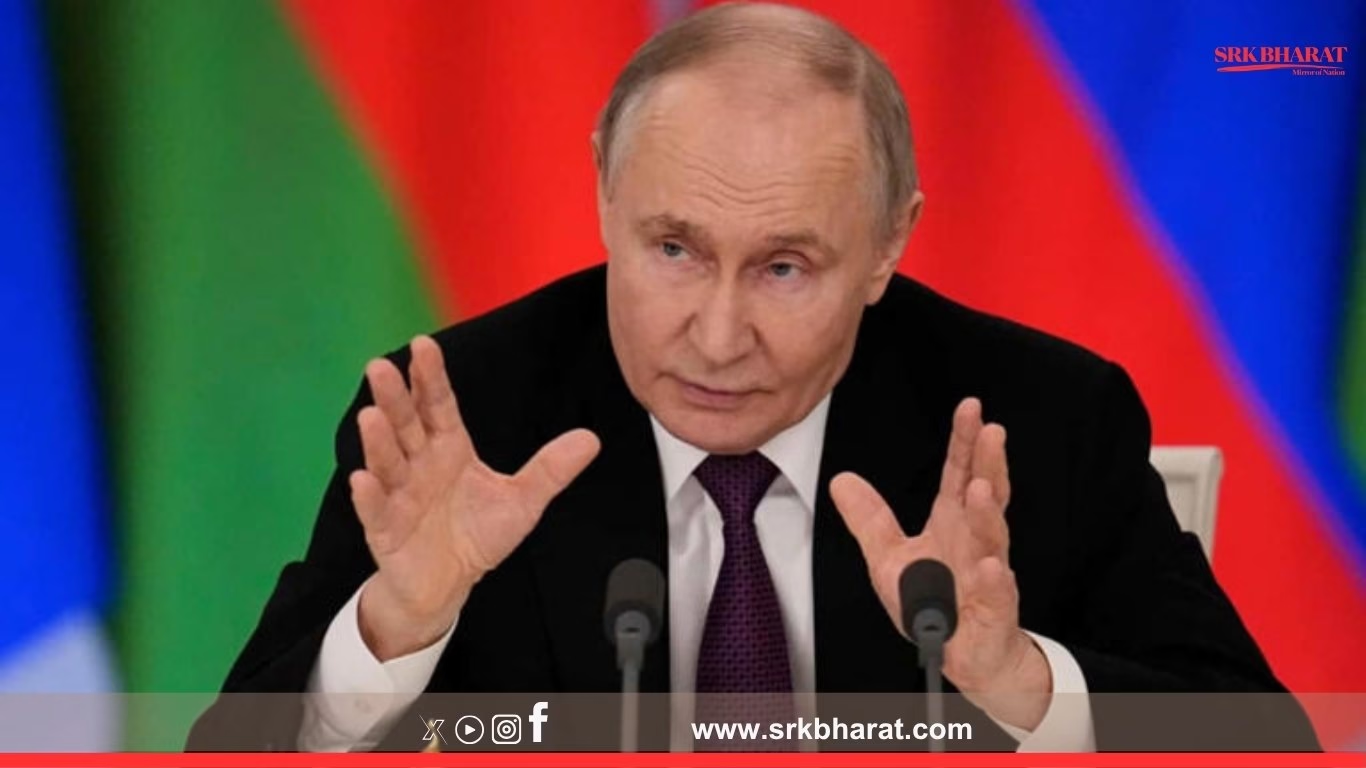
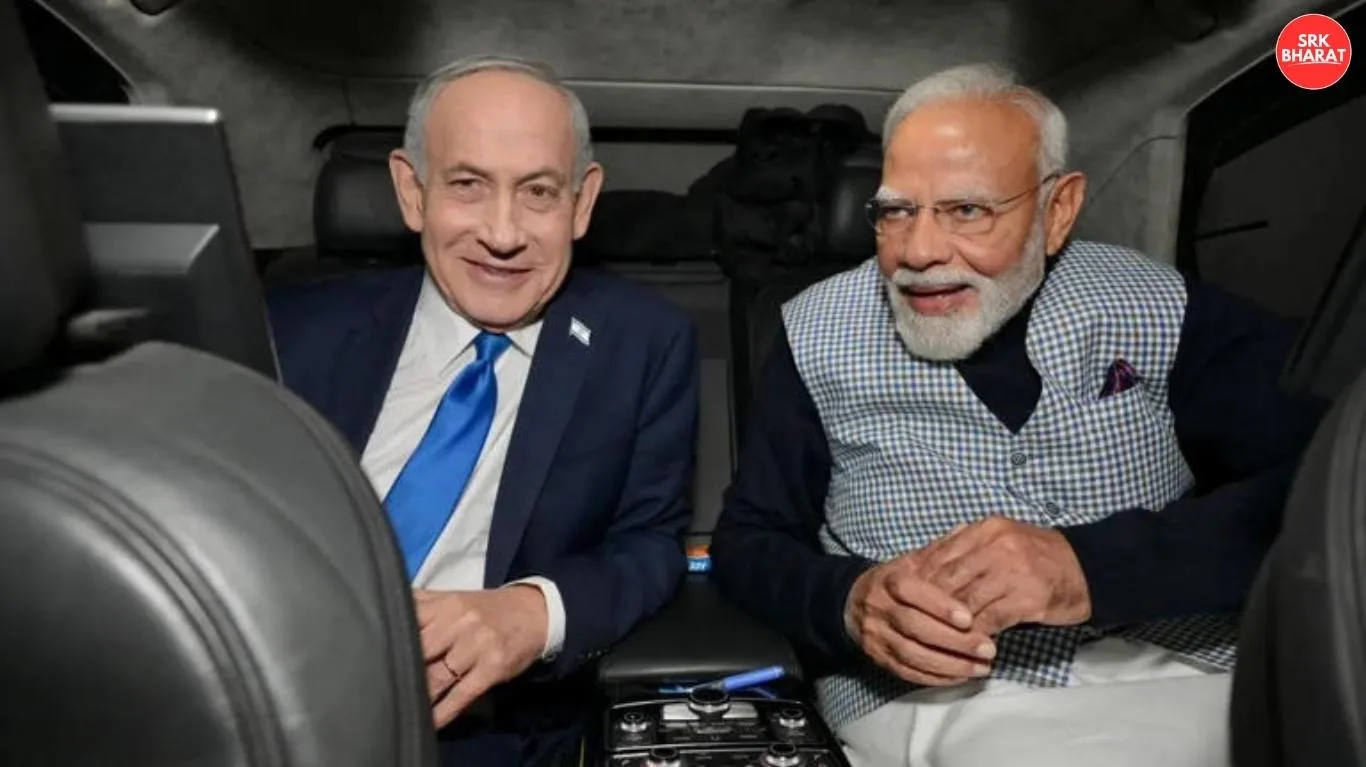



клиника наркологическая москва narkologicheskaya-klinika-23.ru .
1xbet t?rkiye 1xbet t?rkiye .
отделка подвала отделка подвала .
торкретирование торкретирование .
1xbwt giri? https://1xbet-17.com .
частная наркологическая клиника в москве анонимное https://narkologicheskaya-klinika-23.ru .
гидроизоляция подвалов цена http://www.gidroizolyaciya-podvala-cena.ru .
торкретирование бетона цена торкретирование бетона цена .
1xbetgiri? 1xbetgiri? .
вывод из запоя клиника москва http://narkologicheskaya-klinika-23.ru .
гидроизоляция подвалов цена http://www.gidroizolyaciya-podvala-cena.ru .
торкретирование торкретирование .
рольшторы на окна купить в москве http://www.avtomaticheskie-rulonnye-shtory1.ru .
рулонные шторы с электроприводом на окна rulonnye-shtory-s-elektroprivodom7.ru .
1xbet g?ncel giri? 1xbet g?ncel giri? .
1xbet giri? g?ncel 1xbet-giris-2.com .
1xbet tr giri? 1xbet-giris-4.com .
рулонные шторы на окна москва avtomaticheskie-rulonnye-shtory1.ru .
1xbet giri? g?ncel 1xbet giri? g?ncel .
рулонные шторы на окна недорого рулонные шторы на окна недорого .
1xbet ?ye ol 1xbet-giris-2.com .
1xbet giri? linki https://1xbet-giris-4.com/ .
1xbet giri? g?ncel https://1xbet-giris-2.com/ .
электрическая рулонная штора https://avtomaticheskie-rulonnye-shtory1.ru .
электрическая рулонная штора http://rulonnye-shtory-s-elektroprivodom7.ru .
bahis siteler 1xbet bahis siteler 1xbet .
продвижения сайта в google продвижения сайта в google .
поисковое seo в москве поисковое seo в москве .
локальное seo блог statyi-o-marketinge7.ru .
стратегия продвижения блог statyi-o-marketinge6.ru .
seo partner https://www.optimizaciya-i-seo-prodvizhenie-sajtov-moskva-1.ru .
оптимизация и seo продвижение сайтов москва оптимизация и seo продвижение сайтов москва .
оптимизация сайта блог оптимизация сайта блог .
статьи про маркетинг и seo http://statyi-o-marketinge6.ru .
продвижение по трафику продвижение по трафику .
раскрутка сайта франция цена http://www.optimizaciya-i-seo-prodvizhenie-sajtov-moskva.ru .
блог про продвижение сайтов блог про продвижение сайтов .
статьи про digital маркетинг http://www.statyi-o-marketinge6.ru .
перепланировка комнаты http://www.soglasovanie-pereplanirovki-1.ru .
перепланировка в нежилом помещении перепланировка в нежилом помещении .
surewin app https://surewin-online.com .
ice bet slot ice bet slot .
valor казино valor казино .
1xbet turkiye 1xbet-7.com .
согласовать проект перепланировки http://www.soglasovanie-pereplanirovki-1.ru/ .
surewin online casino surewin-online.com .
beep beep casino review http://beepbeepcasino-online.com/ .
valor entrada casino vi?a valor entrada casino vi?a .
1xbet g?ncel giri? 1xbet g?ncel giri? .
перепланировка перепланировка .
beepbeep http://www.beepbeepcasino-online.com/ .
surewin casino malaysia https://www.surewin-online.com .
valor slots valor slots .
1xbet g?ncel https://1xbet-7.com .
перепланировка и согласование http://www.soglasovanie-pereplanirovki-1.ru .
beep beep kasino http://www.beepbeepcasino-online.com .
surewin login malaysia surewin-online.com .
heaps of wins casino sign up heaps of wins casino sign up .
обучение seo обучение seo .
goliathcasino http://www.goliath-casino.com .
icebet slot icebet slot .
кухни на заказ в санкт-петербурге http://www.kuhni-spb-10.ru .
icebet.casino app icebet.casino app .
обучение seo обучение seo .
goliath casino bonus goliath-casino.com .
icebet login icebet login .
seo базовый курc http://kursy-seo-12.ru .
Топ-5 бюро переводов в москве teletype.in/@alexd78/iF-xjHhC3iA .
it переводчик в москве telegra.ph/Oshibka-lokalizacii-pochemu-vash-IT-produkt-ne-ponimayut-za-granicej-11-09 .
Топ-5 бюро переводов в москве teletype.in/@alexd78/iF-xjHhC3iA .
it переводчик услуги telegra.ph/Oshibka-lokalizacii-pochemu-vash-IT-produkt-ne-ponimayut-za-granicej-11-09 .
it перевод стоимость telegra.ph/Oshibka-lokalizacii-pochemu-vash-IT-produkt-ne-ponimayut-za-granicej-11-09 .
бюро переводов в мск teletype.in/@alexd78/iF-xjHhC3iA .
plane crash real money game https://aviator-game-predict.com .
прокарниз https://prokarniz36.ru/ .
электрокарнизы москва https://elektrokarniz2.ru .
карниз моторизованный http://www.elektrokarniz1.ru .
электрические карнизы купить http://www.elektrokarniz-dlya-shtor11.ru/ .
рулонная штора с электроприводом рулонная штора с электроприводом .
кожаные жалюзи с электроприводом https://prokarniz23.ru .
управление шторами с телефона управление шторами с телефона .
мелбет сайт https://v-bux.ru/ .
chicken road game casino https://www.kurica2.ru/az .
курсовой проект купить цена http://www.kupit-kursovuyu-1.ru .
курсовая заказать недорого http://kupit-kursovuyu-6.ru .
купить курсовую https://kupit-kursovuyu-7.ru/ .
курсовая заказать курсовая заказать .
курсовая работа купить москва курсовая работа купить москва .
aviator game aviator game .
battery aviator game apk battery aviator game apk .
aviator bonus game http://www.aviator-game-deposit.com .
aviator money http://www.aviator-game-winner.com .
фирма ремонт квартир фирма ремонт квартир .
inverter game https://aviator-game-deposit.com/ .
лучшие фирмы по ремонту квартир в москве http://rejting-kompanij-po-remontu-kvartir-moskvy.com/ .
рольшторы на окна купить в москве avtomaticheskie-rulonnye-shtory11.ru .
plane money game http://aviator-game-deposit.com/ .
высококачественный ремонт квартир в москве высококачественный ремонт квартир в москве .
рулонные шторы это avtomaticheskie-rulonnye-shtory11.ru .
рольшторы с электроприводом рольшторы с электроприводом .
mt5 download https://www.metatrader-5-downloads.com .
meta trader 5 download https://metatrader-5-mac.com .
download mt5 for mac https://metatrader-5-downloads.com/ .
metatrader 5 mac metatrader 5 mac .
metatrader 5 https://metatrader-5-downloads.com .
metatrader5 download http://metatrader-5-mac.com/ .
metatrader5 download metatrader-5-downloads.com .
автоматические рулонные шторы с электроприводом http://www.avtomaticheskie-rulonnye-shtory11.ru/ .
mt5 mac download http://www.metatrader-5-mac.com .
meta trader 5 download http://www.metatrader-5-downloads.com .
рулонные шторы виды механизмов avtomaticheskie-rulonnye-shtory11.ru .
mt5 mac download http://www.metatrader-5-mac.com .
купить рулонные шторы в москве купить рулонные шторы в москве .
forex metatrader 5 https://metatrader-5-downloads.com/ .
metatrader5 metatrader5 .
оценка залива квартиры оценка залива квартиры .
филлер ру филлер ру .
заказать курсовую работу заказать курсовую работу .
заказать курсовой проект заказать курсовой проект .
купить курсовую http://www.kupit-kursovuyu-8.ru .
помощь курсовые http://www.kupit-kursovuyu-5.ru/ .
сколько стоит сделать курсовую работу на заказ http://www.kupit-kursovuyu-8.ru/ .
курсовой проект купить цена курсовой проект купить цена .
курсовая работа недорого курсовая работа недорого .
заказать качественную курсовую заказать качественную курсовую .
электрокарнизы https://prokarniz36.ru/ .
сколько стоит экспертиза после залива https://ekspertiza-zaliva-kvartiry-5.ru/ .
филлер филлер .
электрокарнизы для штор prokarniz36.ru .
оценка повреждений после залива оценка повреждений после залива .
купить филлеры для косметологов http://www.filler-kupit.ru/ .
электрокарнизы цена prokarniz36.ru .
экспертиза протечки квартиры экспертиза протечки квартиры .
филлеры цена филлеры цена .
электрокарниз двухрядный http://provorota.su/ .
электрокарнизы для штор купить https://www.elektrokarniz2.ru .
1win расмий сайты http://www.1win12043.ru
электронный карниз для штор электронный карниз для штор .
электрокарниз купить в москве provorota.su .
электронный карниз для штор http://www.elektrokarniz2.ru .
карниз с электроприводом карниз с электроприводом .
электрокарниз москва http://elektrokarniz2.ru .
электрокарнизы купить в москве http://www.provorota.su/ .
электрокарнизы для штор купить электрокарнизы для штор купить .
рулонные шторы на окна москва http://www.rulonnye-shtory-s-elektroprivodom.ru/ .
автоматические рулонные шторы с электроприводом http://www.rulonnye-shtory-s-elektroprivodom499.ru .
жалюзи для пластиковых окон с электроприводом https://prokarniz23.ru .
пластиковые окна рулонные шторы с электроприводом http://www.rulonnye-shtory-s-elektroprivodom.ru .
купить рулонные шторы в москве купить рулонные шторы в москве .
горизонтальные жалюзи с электроприводом горизонтальные жалюзи с электроприводом .
автоматические рулонные шторы с электроприводом на окна https://rulonnye-shtory-s-elektroprivodom499.ru .
рулонные шторы на окна купить рулонные шторы на окна купить .
автоматические жалюзи автоматические жалюзи .
вертикальная гидроизоляция подвала http://www.gidroizolyacziya-podvala-iznutri-czena.ru .
гидроизоляция подвала цена за м2 гидроизоляция подвала цена за м2 .
гидроизоляция инъектированием гидроизоляция инъектированием .
курсовой проект купить цена [url=https://www.kupit-kursovuyu-22.ru]https://www.kupit-kursovuyu-22.ru[/url] .
гидроизоляция цена работы за м2 [url=https://www.gidroizolyacziya-czena1.ru]https://www.gidroizolyacziya-czena1.ru[/url] .
экскаватор погрузчик в москве [url=http://arenda-ekskavatora-pogruzchika-5.ru/]http://arenda-ekskavatora-pogruzchika-5.ru/[/url] .
инъекционная гидроизоляция густота состава [url=www.inekczionnaya-gidroizolyacziya.ru]www.inekczionnaya-gidroizolyacziya.ru[/url] .
гидроизоляция подвалов цена [url=https://gidroizolyacziya-podvala-iznutri-czena.ru/]гидроизоляция подвалов цена[/url] .
ремонт бетонных конструкций москва [url=https://remont-betonnykh-konstrukczij-usilenie.ru]ремонт бетонных конструкций москва[/url] .
гидроизоляция подвала услуга [url=https://gidroizolyacziya-podvala-samara.ru]гидроизоляция подвала услуга[/url] .
гидроизоляция цена [url=http://www.gidroizolyacziya-czena1.ru]гидроизоляция цена[/url] .
инъекционная гидроизоляция москва [url=www.inekczionnaya-gidroizolyacziya.ru]инъекционная гидроизоляция москва[/url] .
вертикальная гидроизоляция подвала [url=https://gidroizolyacziya-podvala-iznutri-czena.ru/]gidroizolyacziya-podvala-iznutri-czena.ru[/url] .
гидроизоляция подвала изнутри цена м2 [url=http://gidroizolyacziya-czena1.ru]http://gidroizolyacziya-czena1.ru[/url] .
гидроизоляция подвала москва [url=https://gidroizolyacziya-podvala-iznutri-czena.ru]гидроизоляция подвала москва[/url] .
инъекционная гидроизоляция цена [url=www.inekczionnaya-gidroizolyacziya.ru]инъекционная гидроизоляция цена[/url] .
усиление проема [url=www.usilenie-proemov2.ru/]усиление проема[/url] .
усиление проёмов металлоконструкциями [url=www.usilenie-proemov2.ru]www.usilenie-proemov2.ru[/url] .
помощь студентам курсовые [url=http://www.kupit-kursovuyu-21.ru]http://www.kupit-kursovuyu-21.ru[/url] .
курсовые работы заказать [url=https://kupit-kursovuyu-23.ru/]курсовые работы заказать[/url] .
курсовой проект цена [url=kupit-kursovuyu-22.ru]kupit-kursovuyu-22.ru[/url] .
pin up humo orqali pul o‘tkazish http://pinup5009.ru/
пин ап авиатор уз http://www.pinup5010.ru
пин ап как зарегистрироваться http://pinup5011.ru/
пин ап проверить баланс https://www.pinup5012.ru
пин ап бесплатные игры казино https://www.pinup5013.ru
pin up aviator strategiyasi pin up aviator strategiyasi
aviator игра скачать https://1win5522.ru